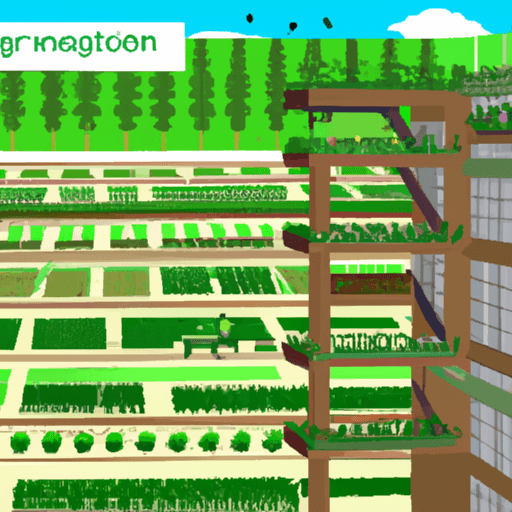Exploring the Technological Evolution in Urban Farming Practices
Urban farming, once a hobby for garden enthusiasts, is rapidly transforming into a technologically sophisticated sector, thanks to emerging innovations. Modern technologies are at the forefront of enhancing urban farming practices, improving food production, quality, sustainability, and efficiency.
The Role of AI in Urban Farming
Artificial Intelligence (AI) is making a significant impact on urban farming. Precision farming, for instance, relies on AI to analyze a range of data from the field, including soil conditions, crop health, and weather forecasts, to make informed decisions. Take the example of Farmbot, a company that produces farming robots. Farmbot uses AI to manage planting schedules, watering, and weed control, minimizing labor and maximizing yield.
IoT's Contribution to Urban Agriculture
Internet of Things (IoT) plays a crucial role in modern urban farming. IoT devices monitor fields remotely, saving farmers time and presenting them with up-to-date field conditions. Aerofarms for instance, uses IoT to monitor their indoor farms accurately, resulting in less water use and bigger yields.
Vertical Farming and Hydroponics: The Future of Sustainable Urban Agriculture
Vertical farming and hydroponics offer practical solutions to space limitations in cities. Vertical farms have multiple growing layers, allowing for efficient use of space. Plenty, a San Francisco-based start-up, uses vertical farming to grow crops indoors, without sunlight or soil, reducing the farm's water usage by 95%.
How Drone Technology is Transforming Urban Farming
Drones offer a fresh perspective in urban farming, chiefly in monitoring crops and spraying pesticides. Taking the case of Drone Farming Australia, their drones provide farmers with precise data on crop health and pest outbreaks, allowing targeted control measures that preserve the crop’s overall health.
Benefits, Challenges, and Future Prospects
Technological advancements in urban farming boost sustainability and efficiency, lower costs, and reduce labor. However, the sector faces challenges, such as the high initial setup costs, and the need for specialized skills to operate these technologies. Despite these challenges, the future of urban farming is bright and appears to be heading towards ever-increasing levels of automation and precision, backed by strong technological-support systems.
Conclusion
In conclusion, the incorporation of modern technologies into urban farming practices is a game-changer. As we aim for improved food security in our cities, the ongoing technological evolution in urban agriculture presents a viable solution for the sustainably-minded future we are striving for.

















Comments
Leave a Comment